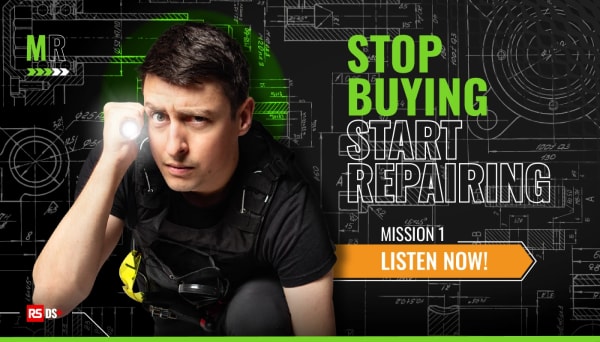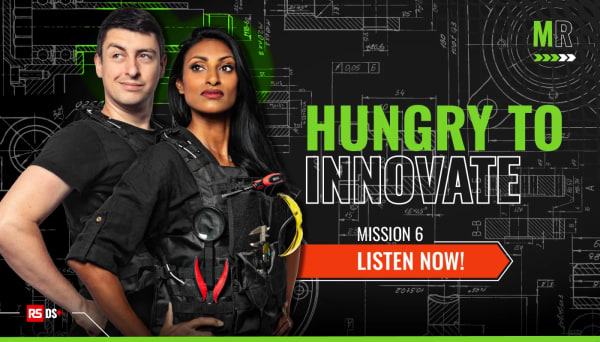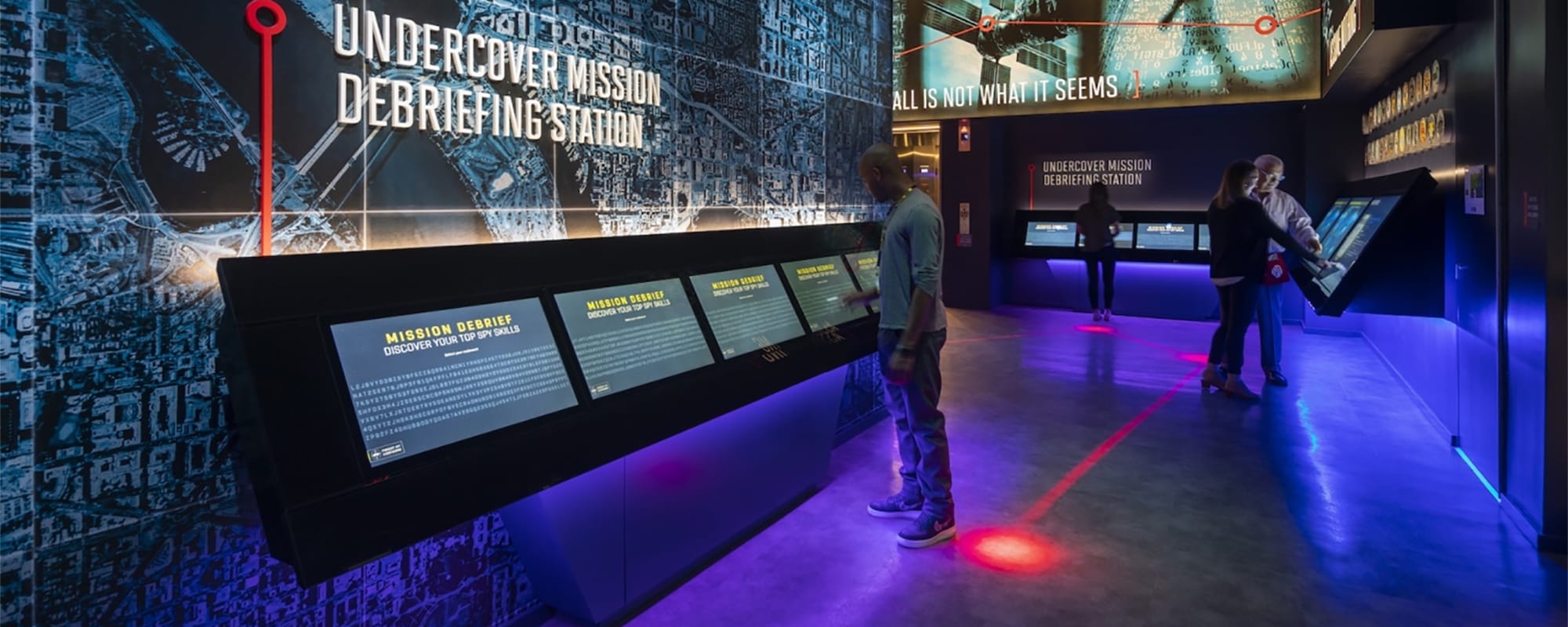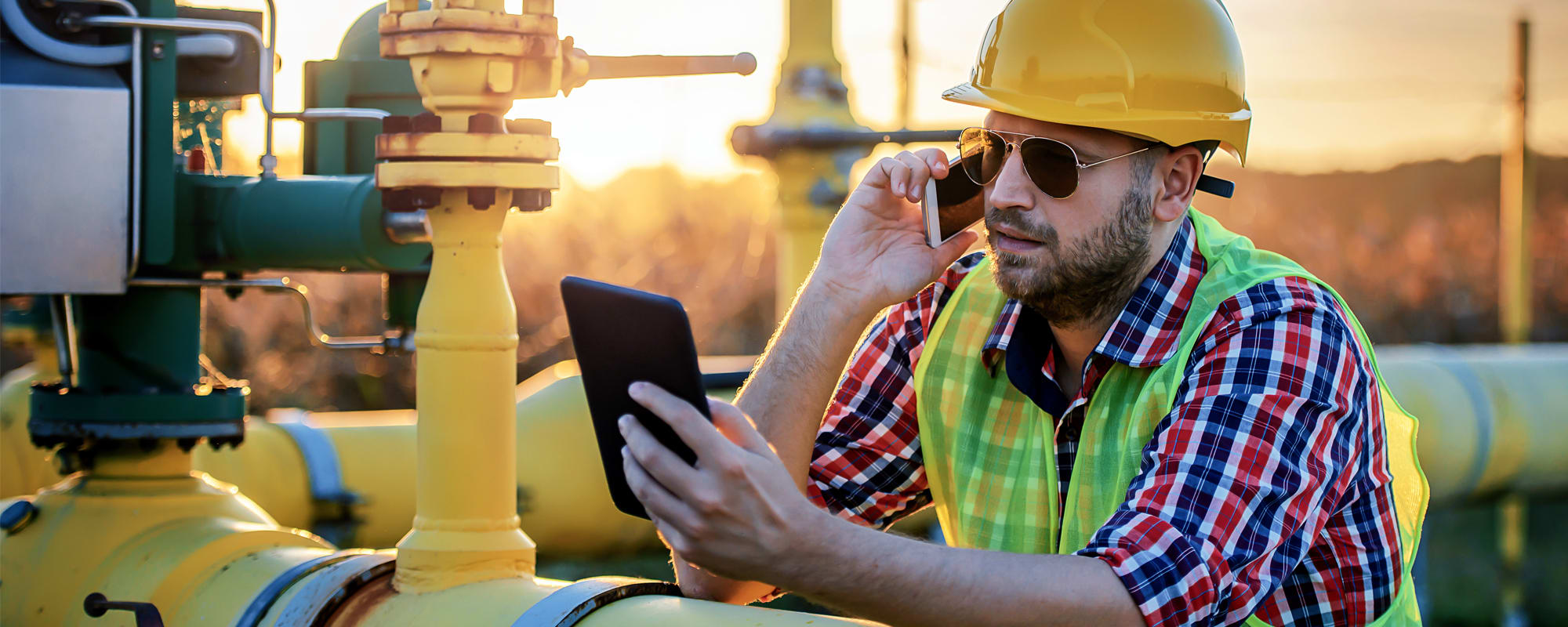Responsible engineering is driving sustainable outcomes by keeping the environment and humankind at the forefront of design. RS DesignSpark’s new “Mission Responsible” podcast celebrates this evolving and impactful trend by showcasing some of the many STEM professionals pioneering responsible engineering practices to create a brighter future.
Responsible engineering is a rising global STEM trend. National engineering organizations, like the National Society of Professional Engineers (NSPE) and the Institute of Electrical and Electronics Engineers (IEEE), have long abided by codes of ethics that list “hold[ing] paramount the safety, health, and welfare of the public” as their primary directive. IEEE takes this idea a step further, adding that engineers should “strive to comply with ethical design and sustainable development practices…and to disclose promptly factors that might endanger the public or the environment.” But responsible engineering takes this idea further still.
In response to the significant global challenges facing humanity — ranging from the climate crisis to insufficient access to clean drinking water, nutritious food, hygienic sanitation facilities, safe housing, and reliable energy — Engineers Without Borders International encourages engineers around the world to help build a just and sustainable future for both people and the planet via four key areas of activity:
- Delivering critical infrastructure to communities in need
- Supporting people in crisis
- Inspiring, building, and shaping a future fit engineering community
- Nurturing future fit engineering solutions
The global impact of many of these environmental and humanitarian challenges is driving sustained interest and rising action in responsible engineering. This practice promotes keeping the environment and humankind at the forefront of every engineering decision to bring about changes for the greater good and places an emphasis on engineering with safe materials, reducing environmental impacts, and updating practices to avoid harming the environment.
In light of this growing trend, RS DesignSpark’s new “Mission Responsible” podcast series emphasizes responsible engineering’s critical role in achieving positive change and encourages the collaboration required to build a better future while addressing topics ranging from reducing noise pollution to building smart cities and revolutionizing agriculture in a fun and accessible way.
The hosts, theoretical atmospheric physicist and science communicator Simon Clark, Ph.D., and mechanical engineer, computational fluid dynamicist, and STEM communicator Shini Somara (EngD) interview STEM experts engaged in responsible engineering initiatives and showcase how their efforts are changing the world for the better.
Mission One: Stop Buying, Start Repairing
Humans produced a massive 57 million tons of e-waste in 2021. Motivated to help find a solution to this waste problem, Simon and Shini investigate how responsible engineering can help us reduce e-waste and fix our way to a more sustainable future. Simon speaks with Megan Hale, CEO and co-founder of Team Repair, which aims to reduce e-waste in the next generation by teaching kids to fix electronics while making science, tech, and engineering fun. And Shini visits Sophia Flucker and Ugo Vallauri at The Restart Project, which teaches people to repair broken electronics and rethink the way they consume them in the first place.
Mission Two: Too Loud to Think
Noise pollution is the second most harmful environmental health issue next to air and water pollution, contributing to thousands of serious illnesses and premature deaths every year. In this episode, Shini and Simon discover how responsible engineering can help combat harmful noise pollution. Shini gains insights from Marion Marincat, Founder and CEO of Mumbli, whose mission is to help people work and live without the stress of excessive noise. Simon learns about advances in sound engineering during a visit to the UCL Soundscape Modelling Lab, where he discusses noise reduction with Dr. Tin Oberman and Andrew Mitchell, who research how sound proliferates in urban areas, buildings, and rooms.
Mission Three: Decoding the Internet of Skills
Advances in networks, robotics, virtual reality (VR), and haptics could enable humans to go beyond current physical boundaries via the Internet of Skills (IOS), which is the application of technology to transfer knowledge, expertise, and skills synchronously over distances. In this episode, Simon and Shini explore responsible engineering’s role in powering the IOS. Simon gleans valuable insights by chatting with Mischa Dohler, VP of Emerging Technologies at Ericsson, the mastermind behind the IOS who’s also pioneering cutting-edge technology like sixth-generation wireless (6G). Meanwhile, Shini visits Shadow Robot, a company at the forefront of innovations in teleoperation technologies, and speaks with Kacper Rozanski and Rich Walker, who are developing advanced robot dexterity integral to actualizing the IOS.
Mission Four: Working Smart and Living Sustainably
Over half the world’s population lives in cities. This number is expected to reach seven billion by 2050, and cities already account for over 70% of global CO2 emissions. So, rethinking approaches to city design is critical to ensuring a sustainable future. That’s why Shini and Simon explore how responsible engineering can help build sustainable cities of the future. Shini interviews Sam Ross, principal investigator at Nexus Aurora, who’s researching permanent human space settlement and discusses the long-term future of humanity in space. Simon visits one of the world’s smartest office buildings, Southworks London, where he speaks with Liam Dillon and Frankie Attard about its ability to adapt to inhabitants, allowing them to create optimal working environments
Mission Five: Cleaning Up the Skies & Space
Travel accounts for one-fifth of global CO2 emissions, and space research has put almost eight thousand tons of waste into Earth’s orbit. To understand these aerial issues and how scientists are solving them, Shini and Simon learn how responsible engineering aids in cleaning up the skies and space. Simon speaks with Luisa Innocenti, Head of the European Space Agency’s (ESA’s) Clean Space initiative to learn more about their mission to decrease the volume of space debris in Earth’s orbit. Meanwhile, Shini discusses sustainable travel with the team developing the first fully-hydrogen-certified plane at Cranfield Aerospace Solutions and speaks to Robert Marsh and Jenny Kavanagh about its implications for innovation in travel
Mission Six: Hungry to Innovate
According to Professor Susan Jebb at the University of Oxford, “We cannot meet net-zero emission targets without changing our diet.” To learn how responsible engineering can help grow food sustainably and reach these net-zero emission targets, Shini interviews Brittany Sambol, VP of Operations at Wildtype, who creates sushi-grade salmon through cell cultivation. Simon visits with India Langley and Jack Farmer of Lett Us Grow to learn about harnessing aeroponic technology that allows plants to grow faster and uses fewer resources — all with zero pesticides.
Responsible engineering is emerging as a driving force among STEM disciplines. Since this approach keeps the environment and humankind at the forefront of every engineering decision, it will be key to solving issues of global prominence, like food and water scarcity and pollution, as well as reinventing both the materials and processes we use to design the world around us. RS DesignSpark’s new “Mission Responsible” podcast celebrates this evolving and impactful trend by showcasing some of the many STEM professionals pioneering responsible engineering practices to create a brighter future. For more information about responsible engineering and its impact, check out the RS DesignSpark articles written by Engineers Without Borders, including “Engineering Change: Engineers Have Great Power” and “Inspiring Globally Responsible Engineering.” To get involved with responsible engineering, check out RS DesignSpark’s #ActivistEngineering initiative, which encourages engineers to develop solutions that enhance people’s lives and share that knowledge with peers and future engineers, or participate in this free, self-paced, online course that will teach and help you apply responsible engineering skills.













